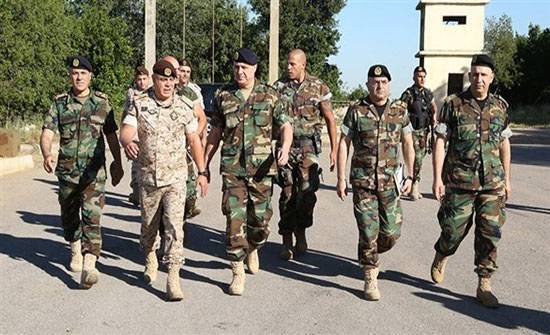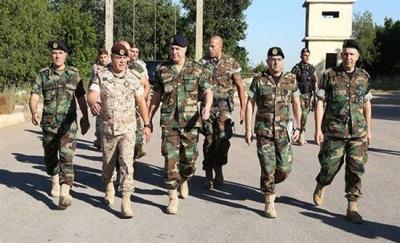Global powers agreed to provide support for the Lebanese army during a meeting on Thursday aimed at preventing its collapse, but they did not go as far as announcing tangible assistance amid the worsening economic and political crisis in the country. The Lebanese army has long been seen as one of the few institutions capable of embodying unity and national pride. Its collapse at the beginning of the civil war, when it fractured along sectarian lines, plunged Lebanon into the grip of militias.
Lebanese army commander General Joseph Aoun stated during the Thursday meeting, organized by France, "The economic crisis that Lebanon is experiencing, which is the worst in its history, has significantly and negatively affected the army, especially its operational missions and the morale of its soldiers, despite all the efforts of the leadership and the minimal missions to maintain security and stability."
In a video posted on the army's Twitter account, he added, "The depreciation of the lira against the dollar has led to a 90% reduction in military salaries, and the same percentage applies to food, medical care, operational missions, and spare parts for vehicles, noting that the army has adopted and continues to implement a notable austerity policy."
He continued, "The ongoing deterioration of the economic and financial situation in Lebanon will inevitably lead to the collapse of institutions, including the military institution, and thus the whole country will be security exposed and vulnerable to many risks, the most prominent of which is terrorism, which will find in Lebanon a theater for its operations and a launching point to abroad."
Paris, which is leading efforts to assist its former colony, arranged the virtual meeting with partners including the United States, Russia, China, European powers, and some Gulf states, although Saudi Arabia did not participate.
Two diplomats stated that the meeting did not yield much despite most countries expressing their readiness to provide assistance bilaterally moving forward, and a monitoring and coordination mechanism would be used in this regard.
Paris has sought to increase pressure on squabbling politicians in Lebanon, but has so far been unsuccessful in pushing them to form a new government capable of implementing reforms that would allow for the influx of foreign cash.
Discontent is rising among security forces due to the currency collapse, which has obliterated most of their salary value, forcing many to seek additional work, with some resigning.
The Lebanese lira has lost 90% of its value against the dollar since late 2019 in a financial collapse that represents the greatest threat to the country's stability since the civil war that raged from 1975 to 1990.
The French Ministry of Armed Forces stated, "Participants highlighted the dire and continuously worsening economic and social conditions in Lebanon. In this context, they emphasized that the Lebanese armed forces, which are under great pressure, remain a fundamental pillar of the Lebanese state."
The statement added, "Its cohesion and professionalism remain a key factor for maintaining stability in the country in the face of further risks."




